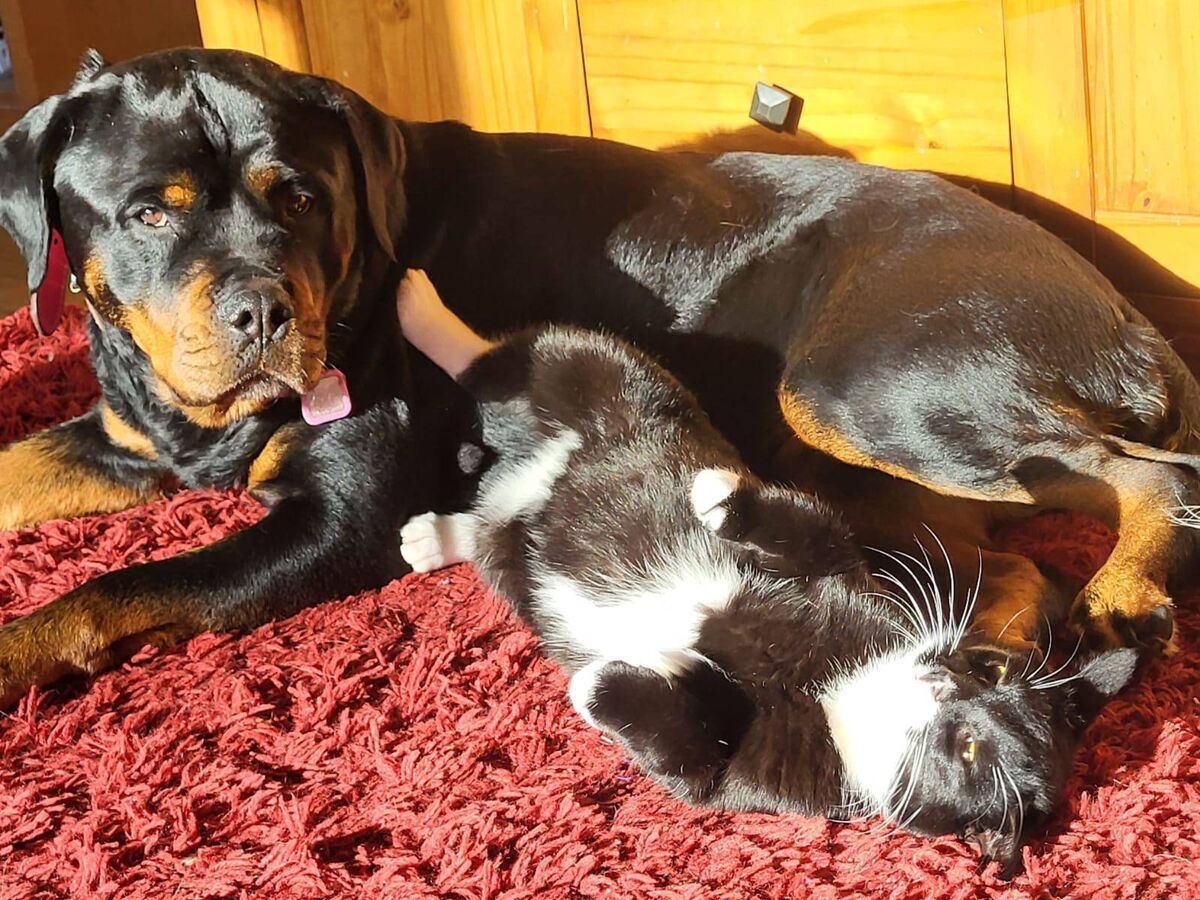A ban on ALL ‘restricted breeds’ of dogs? Surely a step too far

John Dolan's Rottweiler Roxy.
Few would argue if the XL bully, the dog responsible for the death of 23-year-old Nicole Morey, was on such a list.
A mixed breed, it has already been banned in the UK after a dozen deaths there in just three years. There is plenty of evidence to suggest that the XL bully has, in some cases, a hair-trigger temper, a size and ferocity that can do severe damage, and simply cannot be trusted. A potentially lethal combination.
The Irish Government responded swiftly to the tragedy. Just a few months ago, it had set up a special group to look into the issue of dog control, and this latest attack has added extra urgency to its work. It is expected to report back by the end of the summer.
Tánaiste Micheál Martin led the Government’s response to the Limerick attack when he said “a very hard line” needed to be taken.
Such a hard line may well involve banning the notorious XL bully - however, Mr Martin went much further when he suggested there needed to be a blanket ban on all the so-called ‘restricted breeds’ of dogs in Ireland.
That is because the ‘restricted breeds’ list is an arbitrary one, created in 1998 on the back of a tabloid newspaper frenzy in the UK and Ireland, which screamed headlines about ‘devil dogs’.

The list comprises 11 different breeds which have little in common apart from their large size, and includes some popular pets such as German shepherds and Rottweilers.
Roxy, our pet Rottweiler, is a loveable, affectionate, well-trained, and much-loved member of our family, who is a threat to nobody, and is actually scared to death of our cats!
Mr Martin said last week: “I personally cannot comprehend why one would have restricted breeds.”
To which I can only refer him to my eight-year-old daughter Laura, who said in reply to that: “I love my dog, Roxy is adorable, loyal, and funny.”
I fear the Tánaiste, in making a sweeping statement, has tarred all ‘restricted breed dogs’ with the same brush.
Banning 11 breeds because of the actions of one relatively recent introduction to the canine world strikes me as Draconian. I only hope the owners of similarly threatened pets now appeal to him and lobby the Government not to carry out this extreme threat.
Roxy, like all the dogs on that ‘restricted’ list, is big, and can appear over-boisterous, even when she is being friendly. There is a responsibility on the owners of Rottweilers to ensure they are both well-bred and well-trained.
Plus, the owners of all ‘restricted breeds’ have to abide by certain laws - the pet must be muzzled in public, be on a short leash, have ID tags for their owner, and only people over the age of 16 are allowed accompany them in public.
As long as these rules are adhered to, dogs like Roxy are actually much safer than those that are not on the ‘restricted’ list, such as border collies and jack russells, for instance, which are in fact among the most common offenders when it comes to biting people, a study in Cork in 2005 found.

As we have seen in other areas though, such as road offences and dog muck, we in Ireland aren’t the best at policing existing laws.
Many owners of beloved dogs on the ‘restricted list’ will now await the Government’s response in the coming months in trepidation.
John Twomey, a former garda deputy commissioner, was appointed chairman of the dog control stakeholder group in March. It is made up of members from several departments and is due to make its recommendations on dog control legislation by the end of the summer.
If they go the whole hog and impose the blanket ban on 11 breeds that Mr Martin is seeking, it will be a sad day for thousands of pet owners.
If the group really wants to make the dogs of Ireland safer, they could start by banning so-called ‘backyard breeders’ who sell pups online, and legislate for a proper, official system of breeding for all dogs bought and sold here.
At the very least, the ‘restricted breed law’, officially called Breed-Specific Legislation (BSL), is in urgent need of updating.
In the 25 years since it was introduced, large, powerful breeds of dog such as the Belgian shepherd, the husky, and the cane corso have become quite common in Ireland, and yet they are not on the list.
Many dog-behaviour experts argue it was a flawed, illogical knee-jerk response to a complex problem, and that countries who introduced similar laws at that time long ago realised the error of their ways.
In 2017, a study by the Irish Veterinary Journal declared that BSL had no scientific basis.
No less an authority than Veterinary Ireland, which represents vets across the State, has spoken out against BSL, and recommended changes to ensure only irresponsible owners are punished, as it did not believe breeds should be singled out.
There is a strong argument that all dog owners, not just the owners of certain breeds, should be educated on how to ensure their pet is safe in public.
Nanci Creedon, a Cork canine behaviour expert, has spoken out in favour of a mandatory theory test for all prospective dog owners before they can obtain a licence to own one, which strikes me as another area where the Government could introduce legislation.
In the wake of the tragedy in Limerick, this is a sensitive issue that requires a suitable response.
But banning 11 breeds of dog would be a step too far.







 App?
App?




